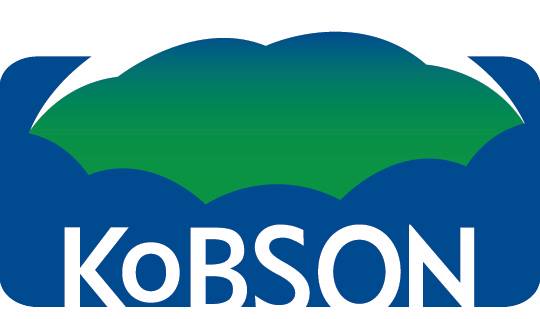DOI: 10.5937/jaes0-27922
This is an open access article distributed under the CC BY 4.0

Volume 19 article 776 pages: 154 - 161
The development of e-commerce business in Jakarta, Indonesia, in recent years has made the Last Mile Delivery
(LMD) business sector develop rapidly. Increased demand for LMD makes the resulting kilometer trips even greater,
resulting in negative externalities. On the other hand, logistics costs in Indonesia are only affected by vehicle operating
costs and no external cost component. Optimization of LMD services that take into account internal and external
costs is needed to minimize the total cost of LMD and in reducing the impact of negative externalities. The purpose of
this paper is to optimize the LMD distribution system on the Heterogeneous Fleet Vehicle Routing Problem with Time
Window and External Costs (HFVRPTW-EC) models. The optimization is done by applying the HFVRPTW-EC model
using data from one of the parcel deliveries companies in Jakarta and then doing a simulation by forming several operational
scenarios. The results show that the optimization of LMD has reduced internal and external costs by more
than 50% compared to existing conditions. The detailed results show that, for the short-term program, a scenario with
a one-tier distribution system and type of motorcycle vehicle can reduce total costs compared to existing conditions
by 66.22% on a peak day and 59.41% on off-peak day. Whereas for long-term program optimization, scenarios with
multiple tier distribution systems and types of motorized vehicles for drop mileage and pick up truck for stem mileage
can reduce total costs by 69.23% on a peak day and 60.24% on off-peak day.
This research is supported by the Research Fund of
PUTI (Publikasi Terindeks Internasional Prosiding) of
Universitas Indonesia, Contract No. NKB-1062/UN2.
RST/HKP05.00/2020 dated 29 April 2020.
1. Redseer (2020). Report On Indonesia ECommerce, Metamorphosis in a Post Covid World. Redseer, Jakarta.
2. Ozan, Sahiner. E-Commerce Impact On Logistics, More Than Shipping. from https://www.morethan-shipping.com/e-commerce-impact-on-logistics/, accessed on 2020-03-01.
3. Lindner, J. (2011). Last Mile Logistics Capability: a Multidimensional System Requirements Analysis for a General Modelling and Evaluation Approach.
4. Taniguchi, E., & Kakimoto Y. (2004). Modelling effects of e-commerce on urban freight transport. Logist. Syst. suistanable cities, vol. 1, 35–46, DOI: 10.1016/B978-008044260-0/50012-X.
5. Brons, M., Christidis P. (2012). External Cost Calculator for Marco Polo Freight Transport Project Proposals. Spain. DOI: 10.2791/93232.
6. Demir E, Huang Y, Scholts S, Van Woensel T. (2015). A selected review on the negative externalities of the freight transportation: Modeling and pricing. Transp Res Part E Logist Transp, vol 77, 95–114. DOI: 10.1016/j.tre.2015.02.020.
7. Cardenas I, Beckers J, Vanelslander T. (2017). E-commerce last-mile in Belgium: Developing an external cost delivery index. Res Transp Bus Manag, vol. 24, no. 12, 3–9, DOI: 10.1016/j.rtbm.2017.07.006.
8. Yudha SW. (2017). Air Pollution And Its Implications For Indonesia: Challenges And Imperatives For Change. Jakarta.
9. Zaroni. Biaya Logistik Agregat, from http://supplychainindonesia.com/new/biaya-logistik-agregat/, accessed on 2020-03-05.
10. Serrano-hernandez A, Alvarez P, Lerga I, Reyes-rubiano L. (2017). Pricing and Internalizing Noise Externalities in Road Freight Transportation. Transp Res, vol. 27, no. 3, 25–32, DOI: 10.1016/j.trpro.2017.12.059.
11. Janjevic M, Winkenbach M, Merchan D. (2019). Integrating collection-and-delivery points in the strategic design of urban last-mile e-commerce distribution networks. Transp Res Part E, vol. 131, 37–67, DOI: 10.1016/j.tre.2019.09.001.
12. Irnich, S., Toth, P., Vigo D. (2014). Chapter 1 The Family of Vehicle Routing Problems. Vehicle routing: problems, methods, and applications. DOI: 10.1137/1.9781611973594.ch1.
13. Erdogan, Gunes. (2017). An open source Spreadsheet Solver for Vehicle Routing Problems. Comput Oper Res, vol. 84, 62–72. DOI: 10.1016/j. cor.2017.02.022.
14. Toth, P., & Vigo D. (2014). Vehicle routing: Problems, methods, and applications (2nd revised edition). Philadelphia: SIAM – Society for Industrial and Applied Mathematics. DOI: doi.org/1611973589.
15. Zaroni. Inovasi Logistik E-Commerce, from https:// supplychainindonesia.com/new/inovasi-logis¬tik-e-commerce/. accessed on 2020-03-05.
16. Lab MCL. Why Last Mile Logistic, from https://megacitylab.mit.edu/why-last-mile-logistics/. accessed on 2020-03-06.
17. European Commission. (2019). Handbook on The External Costs of Transport. European Commission, Brussels.
18. Pisinger D, Ropke S. (2007). A general heuristic for vehicle routing problems. Comput Oper Res, vol. 34, 24–35. DOI: 10.1016/j.cor.2005.09.012.
19. Subramanian A, Drummond LMA, Bentes C, Ochi LS, Farias R. (2010). A parallel heuristic for the Vehicle Routing Problem with Simultaneous Pickup and Delivery. Comput Oper Res, vol. 37,no. 18, 99–111. DOI: 10.1016/j.cor.2009.10.011.
20. Vidal T, Crainic TG, Gendreau M, Prins C. (2014). A unified solution framework for multi-attribute vehicle routing problems. Eur J Oper Res, vol. 234, no. 6, 58–73. DOI: 10.1016/j.ejor.2013.09.045.
21. Niu Y, Yang Z, Chen P, Xiao J. (2018). Optimizing the green open vehicle routing problem with time windows by minimizing comprehensive routing cost. J Clean Prod, vol. 171, no. 9, 62–71. DOI: 10.1016/j. jclepro.2017.10.001.
22. Martins-turner K, Nagel K, Martins-turner K, Nagel K. (2019). How Driving Multiple Tours Affects the Results of Last Mile How Driving Delivery Multiple Vehicle Tours Affects the Results of Last Mile Routing Problems Delivery Vehicle Routing Problems. Procedia Comput Sci, vol. 151, no. 84, 0–5. DOI: 10.1016/j.procs.2019.04.115.







